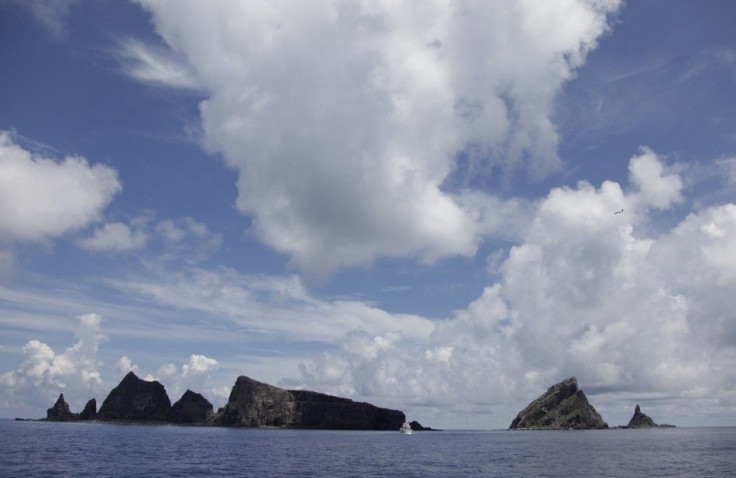China, Japan Deadlock Over Islands Continues But Both Sides Agree To Keep Talking

The deadlock between China and Japan continued late Tuesday in talks between the two countries' foreign ministers with both sides standing their ground claiming sovereignty over a disputed set of islands in the East China Sea.
Japanese Foreign Minister Koichiro Gemba described the atmosphere of talks, on the sidelines of the 67th U.N. General Assembly in New York, as “severe,” Japan’s Kyodo news agency reported.
China's Foreign Minister Yang Jiechi communicated his country’s “solemn position” with regard to the island to his Japanese counterpart.
Notwithstanding the talks to ease the tensions over the islands called Senkaku in Japanese and Diaoyu in Chinese, the Chinese government Tuesday issued a white paper titled, “Diaoyu Dao, an Inherent Territory of China,” asserting the country’s “indisputable sovereignty over it and its affiliated islands,” China’s official Xinhua news agency reported.
The paper called Japan’s recent purchase of the three of the five main islands Sept. 11 from its private owner a “gross violation” of China’s territorial sovereignty and “seriously trampled on historical facts and international jurisprudence.”
The islands were “by no means 'terra nullius,’” the paper said. “China is the indisputable owner of Diaoyu Dao as it had exercised valid jurisdiction over the island for several hundred years long before the Japanese people 'discovered' it.”
“China's position on the issue of Diaoyu Dao is clear-cut and consistent,” the paper declared. "China's will to defend national sovereignty and territorial integrity is firm and its resolve to uphold the outcomes of the World Anti-Fascist War will not be shaken by any force.”
Japanese Chief Cabinet Secretary Osamu Fujimura told a news conference in Tokyo that the two sides had agreed to keep talking, Reuters reported.
"There is no magic bullet in foreign diplomacy. We need to hold talks through various channels taking into account the broad perspective," Fujimura was quoted as saying in the report.
Chinese Vice Foreign Minister Zhang Zhijun met with Japan's Vice Foreign Minister Chikao Kawai in Beijing Tuesday, upon Japan’s request and signaling that Asia’s two largest economies were trying to settle the dispute. However, the new white paper and China’s reiterating claims of sovereignty indicate that the dispute is far from over.
Japanese and Taiwanese coast guard vessels exchanged water cannon blasts Tuesday in the East China Sea after about 40 Taiwanese fishing boats, escorted by eight Taiwanese patrol ships, entered the waters around the islands under Japanese administration.
The islands, surrounded by an area rich in fisheries and believed to contain significant hydrocarbon resources, have long been a matter of feud between China, Japan and Taiwan.
Both Taiwan and China have laid claim to the islands since the U.N. returned them to the Japanese sovereignty in the Okinawa Reversion Agreement that ended the U.S. occupation of Okinawa. Despite the normalization of relations between China and Japan in September 1972, repeated tussles involving fishing and patrol boats from China, Japan, Taiwan and Hong Kong occurred in the past.
For the first time in history, the official reception in Beijing to commemorate the normalization of ties, held every five years, was postponed in the wake of the tensions.
Reflecting the economic repercussions of the dispute, Japanese automakers Toyota, Nissan and Suzuki were cutting down production in China, according to Reuters.
© Copyright IBTimes 2024. All rights reserved.












